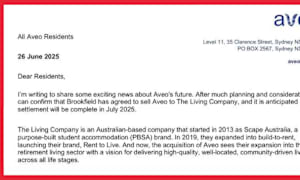Aged & Community Services Australia (ACSA) is advocating for a funding system that will provide certainty and adequacy for aged care operators.
The Government is currently undertaking a review of residential aged care funding in collaboration with the University of Wollongong following the $1.2B in cuts to the sector announced in last years Budget. The objective is to hold RAC funding to 5% growth.
Currently the Governments forward estimates have committed to providing $17B in funding for the sector in 2017/2018; climbing to $18.4B in 2018/19 (8% growth) and $20.1B in 2019/20 (9% growth).
ACSA is also seeking $2M for the development of an industry-led workforce strategy for the sector, plus financial assistance for providers to help providers adapt to new aged care models, in particular those in remote, rural and regional areas.The Aged Care Guild also released their Submission, asking for no cuts to aged care expenditure in 2017-18 and the forward estimates; and a sustainable funding strategy supported by increased consumer contributions and changes to means testing.
The Aged Care Guild also released their Submission, asking for no cuts to aged care expenditure in 2017-18 and the forward estimates; and a sustainable funding strategy supported by increased consumer contributions and changes to means testing.In their statement, CEO Cameron OReilly argues: It is misleading to suggest that the sector is currently being funded at a growth rate of 5.1% p.a. when much of this is attributable to the natural growth of the sector (i.e. new beds coming online), the increasing frailty of new residents and Commonwealth Own-Purpose Expenses (COPE).
In their statement, CEO Cameron OReilly argues: It is misleading to suggest that the sector is currently being funded at a growth rate of 5.1% p.a. when much of this is attributable to the natural growth of the sector (i.e. new beds coming online), the increasing frailty of new residents and Commonwealth Own-Purpose Expenses (COPE).









